We like the fact that The Wall Street Journal provides deeper dive reading on the weekends in the “Review” section. The piece that caught our eye was titled “The Secret of Immigrant Genius.” Genius is a topic we bandy about here. As for highly motivated immigrants, our Frankie is a poster child.
So we made the time to read thought this roughly 1000-word piece and found ourselves underlining lots of phrases and sentences. Quite thought-provoking, for sure.
Then we let our mind wander as we considered items related to this piece. We were goaded into having an inside the box adventure.
“Wait… what?”
We’ve embraced the Google search box as a gateway for exploring ideas. The Amazon search box was also put to use — though it is dangerous as once again, the Wish List of books to read has expanded.
What was in our box?
Let’s start with the author of this essay. His name is Eric Weiner, the author of “The Geography of Genius: A Search for the World’s Most Creative Places, From Ancient Athens to Silicon Valley.” His book had just been published (5 January 2016) by Simon & Schuster.
Per his author page on Amazon, we learned that Mr. Weiner has written other books. He was described as author of the “New York Times” bestseller “The Geography of Bliss,” which has been translated into eighteen languages, as well as the critically acclaimed “Man Seeks God.”
We also learned that his background includes being a foreign correspondent for NPR, which had him reporting from more than three dozen countries. Impressive!
He has his own info page (www.ericweinerbooks.com). But before venturing there, we checked out a video that, in a whimsical way, explains what his “Geography of Genius,” book is all about.
***
Okay, we’re impressed. We stepped away from the Web and revisited the essay. Below are some of the things that popped out (AKA Notable Quotables):
- Recent research points to an intriguing explanation. Several studies have shed light on the role of “schema violations” in intellectual development. A schema violation occurs when our world is turned upside-down, when temporal and spatial cues are off-kilter.
>> What an interesting choice of words to describe being turned upside-down
- …researchers asked some subjects to make breakfast in the “wrong” order and others to perform the task in the conventional manner. Those in the first group—the ones engaged in a schema violation—consistently demonstrated more “cognitive flexibility,” a prerequisite for creative thinking.
- …Many immigrants possess what the psychologist Nigel Barber calls “oblique perspective.” Uprooted from the familiar, they see the world at an angle, and this fresh perspective enables them to surpass the merely talented. To paraphrase the philosopher Schopenhauer: Talent hits a target no one else can hit. Genius hits a target no one else can see.
>> Okay “oblique perspective” feels ugh! Very academia (Our Joey liked it) But we hung in there and were stoked to see the Schopenhauer reference.
>> What a great quote!
Other notables:
- Exceptionally creative people such as Curie and Freud possess many traits, of course, but their “openness to experience” is the most important, says the cognitive psychologist Scott Barry Kaufman of the University of Pennsylvania. That seems to hold for entire societies as well.
>> Yeah, openness to experience is huge in our world.
It isn’t necessarily new ideas from the outside that directly drive innovation, Dr. Dean Simonton argues. It’s simply their presence as a goad. Some people start to see the arbitrary nature of many of their own cultural habits and open their minds to new possibilities. Once you recognize that there is another way of doing X or thinking about Y, all sorts of new channels open to you, he says. “The awareness of cultural variety helps set the mind free,” he concludes.
Timeout! It’s “Inside the Box” time again!
First, a clarification on the word goad — one we all think we know. Didn’t hurt to confirm its meaning.
Next, we wanted to learn a bit about Dean Simonton of the University of California. The essay referenced his work that appeared in the Journal of Personality and Social Psychology.
What we Left-Coasters know is that there are a lot of UC branches / campuses. Where did he hail from?
To start, we should be calling him Dr. Dean Keith Simonton (he earned his PhD in 1975 from Harvard University). We also discovered that he is Distinguished Professor of Psychology at the University of California, Davis (an Aggie!).
>> We may need to lure him down to the cafe for a chat.
What we liked best was the sentiment expressed in the last sentence of this piece.
Once creativity is in the air, we all breathe a more stimulating air.
>> Yup! We concur big time.
***
As you can see, a 1000-word piece that could have easily slipped under the radar, instead goaded us into a mentally stimulating adventure with lots of ponderables for consideration.
All because we were curious — so now to be hip, we’ve created our own hashtag for Stay Curious My Friends (way too long). It is simply: #SCMF. Embrace it! You’ll find yourself way energized.
###
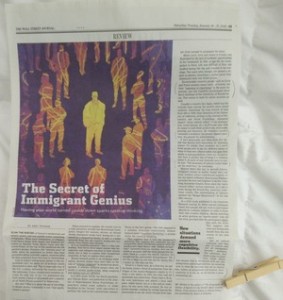

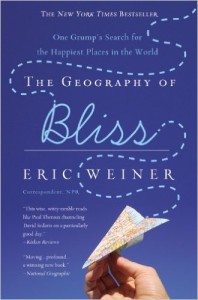
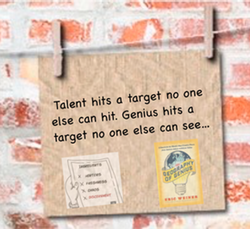
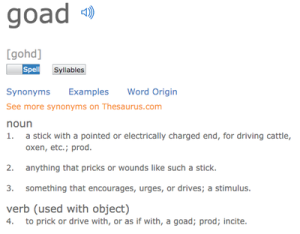

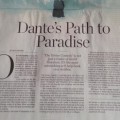



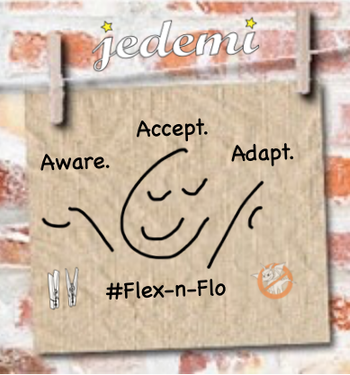




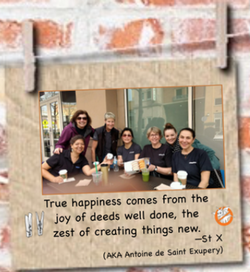



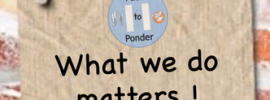


Speak Your Mind